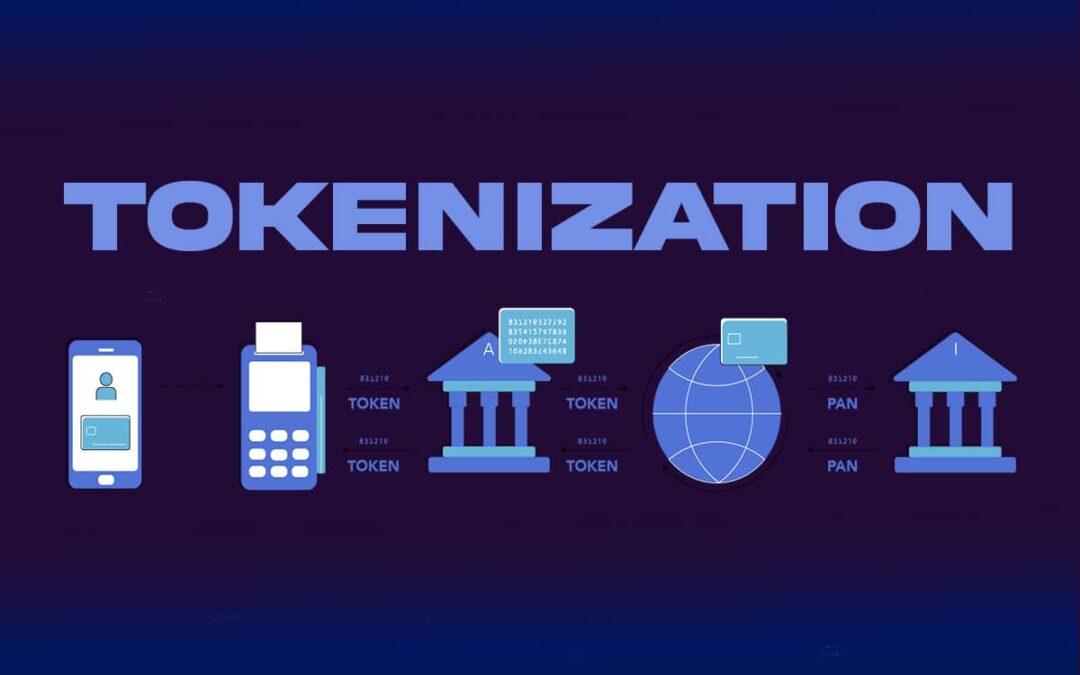A Comprehensive Look at the Benefits and Challenges of Tokenization and its Impact on the Global Economy
In a rapidly evolving business world, technological innovations are emerging, some quickly fading while others are transforming how we do business. One such technology that has gained significant attention is tokenization. It is no longer just a buzzword but a phenomenon that has the potential to impact the global economy significantly.
What is Tokenization?
Tokenization is the process of converting tangible assets, such as real estate, art, and precious metals, into a digital equivalent or token using blockchain technology. The token represents ownership of the underlying asset and can be traded or exchanged on a blockchain platform.
The idea of tokenization originated in the early 2000s when TrustCommerce introduced it in the digital realm to replace sensitive data, such as credit card information, with a digital counterpart called a token. The goal was to protect credit card details from data theft and cyberattacks.
Today, tokenization holds immense potential, continually advancing alongside blockchain technology. It goes far beyond cybersecurity and implies the conversion of tangible assets into a digital equivalent through a blockchain, ensuring improved liquidity.

The Growth of Tokenization
The global tokenization market has been showcasing remarkable growth, with an average annual growth rate of 19%. According to Markets & Markets, the tokenization market is expected to grow from $2.3 billion in 2021 to $5.6 billion by 2025.
Benefits of Tokenization
Tokenization offers several benefits, including improved liquidity, quicker settlement times, reduced costs, and strengthened risk management. In addition, by leveraging blockchain technology, tokenization can secure both traded and non-traded assets. Below, we highlight some benefits of tokenizing physical assets:
- Security: When a token is created, blockchain technology generates a unique address, ensuring strong data protection through access control, automatic rights transfer, and remote decentralized file storage. Tokenization implies that only authorized users can access the system through unique tokens.
- Efficiency: Tokenization reduces transaction time by allowing 24×7 trading and triggering smart contracts based on predefined parameters. Consequently, settlement times are shortened from their current duration of, at best, T+2 to near-real-time transactions.
- Flexibility: Tokenization eliminates constraints in the real world, such as the inability to divide assets into smaller pieces. Tokens represent parts of ownership that can be traded, making them available for a broader array of investors.
- Convenience: With smart contracts, assets can be sold or purchased anywhere. Public blockchains are inherently accessible to individuals worldwide without any external barriers to entry.
Tokenization and Blockchain
Blockchain is a decentralized data system that belongs to everyone and no one simultaneously. It comprises an online record of transactions that is perpetually replicated across multiple computing stations in a secure ledger system, eliminating the slightest risk of data theft. Furthermore, the blocks in the blockchain represent permanent file pages, making any manipulations impossible without the consent of the other participants or making a retroactive change.
Tokenization becomes even more potent when coupled with blockchain. Through tokenization, the payment industry has become faster, safer, and more efficient, with tokens representing the value of trading assets, such as a fiat currency, stock, or commodity. In addition, thanks to blockchain, tokens can be transferred directly between parties without banks as intermediaries, reducing transaction fees and accelerating settlement times.
The Reach of Tokenization
Tokenization has the potential to be applied in various fields, including real estate, asset management, and contracts. By dividing securities, commodities, or other financial assets into smaller denominations, investors benefit from greater affordability and flexibility in managing their portfolios.
In the art world, tokenization has also found a place. In June 2021, the renowned auction house Christie’s announced its first-ever sale of purely digital artwork. The artwork, a collage by artist Beeple, sold for $69 million and was sold as a non-fungible token (NFT). This sale has paved the way for digital art to be tokenized and sold in the same way that physical art is sold at auction.

Tokenization’s Future
The future of tokenization looks bright, with numerous possibilities on the horizon. Tokenization is set to revolutionize the world of finance, with the potential to democratize investment opportunities and make them accessible to a broader range of investors. It could also significantly impact the real estate market, allowing investors to buy fractional ownership of properties and making real estate investment accessible to more people.
Tokenization could also significantly impact supply chain management, allowing companies to track products from the source to the end consumer. By tokenizing each product, companies could ensure that products are genuine and have not been tampered with at any point in the supply chain.
Another area where tokenization could make a significant impact is in voting systems. By tokenizing the voting process, it could eliminate the potential for fraud and hacking, ensuring that votes are counted accurately and securely.

In Conclusion
Tokenization is a powerful tool transforming multiple industries, from finance to real estate. Its ability to democratize investment opportunities and provide greater liquidity and transparency is already attracting worldwide attention from investors and businesses.
While there are still challenges to overcome, such as regulatory hurdles and the need for greater education and awareness, the future of tokenization looks bright. As blockchain technology continues to develop and integrate with other emerging technologies, the potential applications of tokenization are endless.
Whether it’s the democratization of investment opportunities, increased efficiency in supply chain management, or the security of voting systems, tokenization is reshaping multiple industries, making them more accessible, efficient, and secure.

